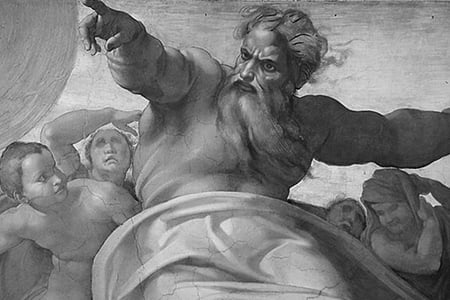A father's struggle to pray for his child's healing is one of the most difficult experiences he can face.
Author
- All Authors
- 1517 Publishing
- 1517 Staff
- A. A. Just Jr.
- Adam Francisco
- Amy Mantravadi
- Andrew Foss
- Blake Flattley
- Bob Hiller
- Bob Sundquist
- Bonnie Petroschuk
- Brad Soenksen
- Bradley Gray
- Brandon Hanson
- Brandon Pangman
- Brennan Manning
- Brian W. Thomas
- Bror Erickson
- Bruce Hillman
- C.S. Lewis
- Caleb Keith
- Chad Bird
- Charles E. Fry
- Cindy Koch
- Craig Donofrio
- Dan Chrismer
- Dan van Voorhis
- Dan Weber
- Daniel Deen
- Daniel Emery Price
- Daniel Stenberg
- David Clay
- David Rufner
- David Schmitt
- Delwyn Campbell
- Dominick Santore
- Donavon Riley
- Edward Killian
- Elyse Fitzpatrick
- Erick Sorensen
- Gage Jordan
- Gerhard Forde
- Grant Klembara
- Gretchen Ronnevik
- Haroldo Camacho
- Hermann Sasse
- Jacob Corzine
- Jake Allstaedt
- Jared C. Wilson
- Jason Lane
- Jason Lang
- Jason Oakland
- Jay Sawrie
- Jeff Mallinson
- Jeffrey Pulse
- Jenifer Mohan
- Jessica Delgado
- Jessica Thompson
- Jim Nestingen
- Joel Fitzpatrick
- Joel Hess
- John Bombaro
- John Bortulin
- John Chrysostom
- John T. Pless
- John W. Hoyum
- John Warwick Montgomery
- Jonathan Ruehs
- Jordan Spina
- Joshua Miller
- Justin Rossow
- Karen Stenberg
- Kathy Morales
- Katie Koplin
- Kelsi Klembara
- Ken Sundet Jones
- Kerri Tom
- Kevin Hale
- Kevin McClain
- Kyle G. Jones
- Larry D. Hughes
- Laura Bauer
- Luke Kjolhaug
- Magnus Persson
- Mariah Coward
- Mark Jasa
- Mark Mattes
- Mark Pierson
- Martin Luther
- Matt Johnson
- Matt Kroelinger
- Matt Popovits
- Michael Berg
- Michael Gibney
- Nicholas Hopman
- Nicholas Kallis
- Norman Nagel
- Paul Dunk
- Paul Koch
- Pete Lange
- Peter Nafzger
- Philip Bartelt
- Preston Sprinkle
- Raleigh Sadler
- Rick Ritchie
- RJ Grunewald
- Robert Farrar Capon
- Robert Kolb
- Rod Rosenbladt
- Roland Ehlke
- Ron Hodel
- Ryan Cosgrove
- Ryan Couch
- Ryan Tinetti
- Sam Leanza Ortiz
- Sam P. Schuldheisz
- Sarah Crowder
- Scott Davis
- Scott Keith
- Scott Landrum
- Seth Moorman
- Steve Byrnes
- Steve Kruschel
- Steven A. Hein
- Steven Paulson
- StoryMakers NYC
- Tanner Olson
- Tate Barber
- Ted Rosenbladt
- Travis Scholl
- Tyler Cronkright
- Uwe Siemon-Netto
- Valerie Thur
- Wade Johnston
- Walter Hwang
- Wayne Sender
- Zack James Cole
-
This is an excerpt from the introduction of “Common Places in Christian Theology: A Curated Collection of Essays from Lutheran Quarterly,” edited by Mark Mattes (1517 Publishing, 2023).
-
What we discover in O’Connor’s stories and Martin Luther’s theology is that God’s grace is elusive because the human heart is resistant to it.
-
This is the message of Lent. We are not called to sacrifice for Jesus in order to earn our salvation. Rather, we are called to remember the sacrifice that Jesus made for us.
-
This is an excerpt from “The Alien and the Proper: Luther's Two-Fold Righteousness in Controversy, Ministry, and Citizenship,” edited by Robert Kolb (1517 Publishing, 2023). Now available for purchase.
-
That great truth of creedal Christianity – that God is man in Christ – is not set forth for our speculative enjoyment.
-
Hains offers a novel yet simple contention: Luther is most catholic where he is boldest.
-
A theologian is a passive receiver of God’s active revelation about Jesus Christ, his words, works, and ways.
-
Who is God really? He is offensive, anarchic by the world’s standards, and far too gracious to people who don’t deserve his time or attention.
-
If a key part of the Reformation was placing God’s Word back into the hands of the people in a clear, understandable way, then John of Ragusa can be called a “Prometheus” in his own right.
-
When the Reformers read the Bible (especially when studied in the original languages), they found a God who was gracious and merciful for the sake of Christ.
-
The good news is that with our God there is always more: more than we deserve, dare, ask, or expect, more than we can see, hear, feel, or think.















